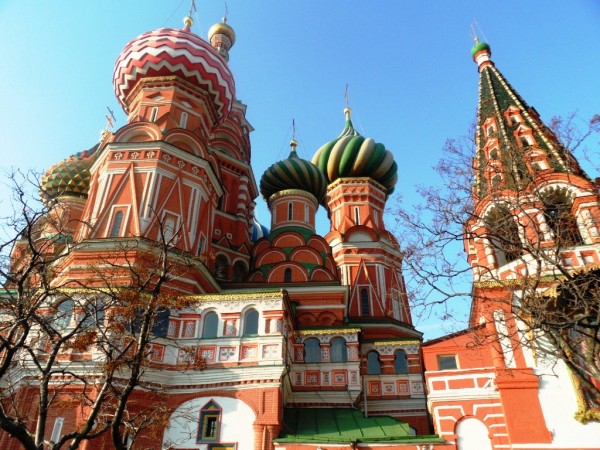
If you travel to Russia for a week or two, you’ll certainly be aware of how different it is from your home country. Spending three months in Russia gave me a lot of time to notice things – big and small, good and bad. I personally tend to notice (and sometimes get amused by) the little things. So while I am not promising that any of these are super deep and insightful – and they certainly shouldn’t be taken as a commentary on the entire country or population – these are the things that I noticed the most while I was in Russia.
Things I Liked:
1. Repair shops on every corner. If the zipper on your coat breaks (like mine), if you need to replace the heel on your boot (I did) or if you need to repair your camera (yep, me again), you don’t have to look far in Russia. In every city from St. Petersburg to Moscow to Irkutsk, the streets seemed to be lined with repair shops staffed by people just itching to fix whatever you have that is broken, whatever that may be.

2. Respect for the elderly.While it may be a fading art in the United States, Russians still seem very apt to give up their seats on the Metro and the bus to women with children and the elderly.
3. Electric water pots. I am told these are commonplace throughout Europe, but I saw them for the first time in Russia. Sure, they are necessary to boil water before drinking it there (a pain), but they are awesome for boiling water to make tea. I want one when I get home!
4. Safety. I don’t know if this was because of the police presence (see below) or in spite of it (or neither), but I felt incredibly safe the entire time I was in Russia. While I had heard horror stories about pickpockets in the Metro and scams in Red Square, I never felt insecure or threatened in any way.
5. Public transportation. In Moscow and St. Petersburg, a single ride on the Metro was less than $1.00 and the trains ran like clockwork. I don’t think I waited longer than 3 minutes for a train the entire time I was there. Bus, tram or trolley rides cost as little as sixty cents in the capital and even less when I got out east to places like Vladivostok and Krasnoyarsk. In Irkutsk, a marshrutka (mini-van) to take me the six-hour journey to Olkhon Island was only 700 rubles – less than $25!
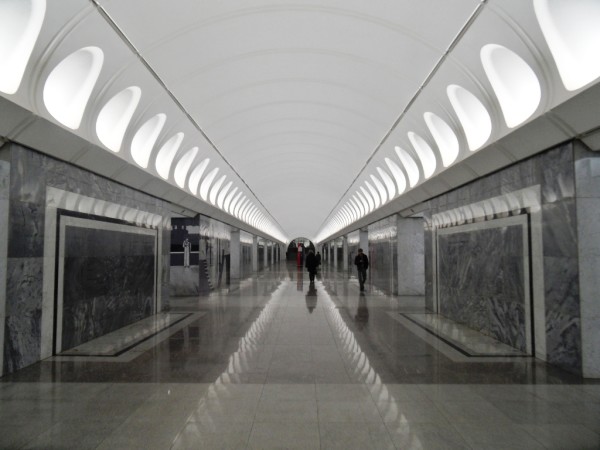
6. Friendliness. This was especially true of those in mine and my parents’ generations – the couple who walked me to my hostel in Moscow when I was lost; the woman who took me by the arm in Vladivostok to show me where my bus stop was; the man who gave me a ride back to Irkutsk from Taltsy in a snowstorm for free; the woman who helped me practice Russian on the Trans-Siberian; the man in Kazan who not only showed me to my bus but rode it with me to make sure I got off at the right stop; and the café owner who was so excited to meet an American that he gave me a free cup of tea and a candlestick holder as a souvenir. These folks all put a smile on my face.
7. The food. I don’t mean Russian cuisine, but rather the ingredients. I spent several weeks cooking for myself and I swear everything I prepared – eggs, chicken, rice, potatoes, etc. – tasted better than it usually does at home. And I really don’t think it’s because I became a better cook.
8. The plethora of kiosks and street vendors. If you need to buy something in Russia, chances are you don’t need to go far to find it. Kiosks lined the streets, selling everything from snacks and newspapers to mobile phones and remote controls. Below the streets, in the pedestrian walkways, more vendors hawked their goods – umbrellas, souvenirs, hosiery, jewelry, watches, batteries, clothing – you name it, someone was likely selling it somewhere.
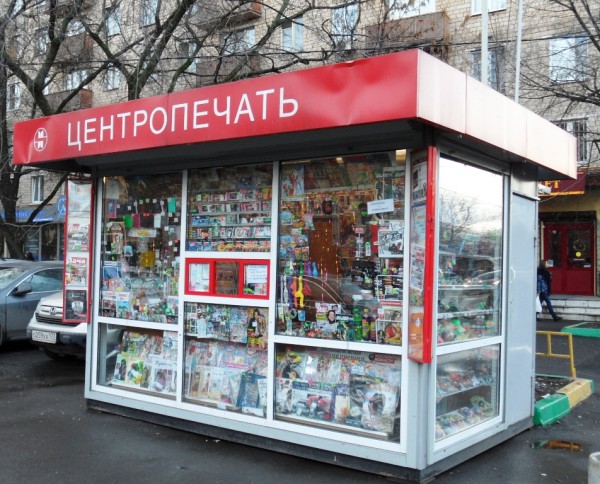
Things I Didn’t Like:
9. Constant police presence. They seemed to be everywhere in Moscow, slightly less in St. Petersburg and much less elsewhere. It was not uncommon to see them stopping people and asking for their “documents.” As a tourist, this made me nervous, even though their targets seemed to be a bit more race-related. I would have to say a much higher proportion of those I saw being questioned were dark-skinned.
10. Rudeness of young people. I don’t want to generalize, but every negative interaction I had in Russia involved someone in their early twenties. On one occasion, a girl snapped at me for getting on the wrong bus. Another time, a guy scolded me to speak English instead of Russian and then when I repeated my question in English, he flatly said he didn’t understand and walked away. And don’t even get me started about how rude and inconsiderate the Russians in my Moscow hostels were.
11. Sleeping habits. I lived with two different families, shared a flat with a few twenty-somethings for two weeks and spent 9 nights on overnight trains. I have never seen people sleep so much. As a morning person, this was hard to get used to – I was up and ready to go by 8 or 9 and everyone else was still sound asleep at 11.
12. Chip on shoulders. People seemed to have a bit of a chip on their shoulders. In conversations with dozens of Russians over the course of three months, it seemed that most were convinced they have it worse than everyone else with respect to nearly everything – their weather is worse, their traffic is worse, their Colgate toothpaste is worse than the Colgate toothpaste in the United States.
13. Not flushing toilet paper. I know, this is the case in a lot of developing countries, where the plumbing system allegedly just can’t handle it. And it probably wouldn’t be so bothersome if bins were emptied on a regular basis, but when they aren’t, the stench just grows and grows….
14. Smoking everywhere. This was definitely a shock to the system coming from the United States, where it has become almost taboo to smoke in many situations. In Russia, it felt like those who weren’t smoking were the exception. It was everywhere – I even saw people light up on the “electrichiski” (suburban) trains in St. Petersburg before they pulled into the station.
Things I Simply Found Interesting:
15. Flower shops are everywhere. And most seem to be open 24 hours. Just in case you need flowers at 3 a.m. (this would be a “like” but for the fact that I never really had the urge to run out and buy flowers).
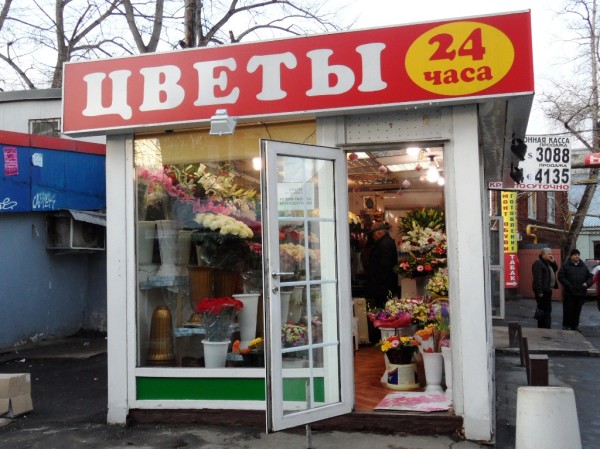
16. Rap is huge. I don’t know why, but I didn’t expect rap music to be as popular in Russia as it seems to be. The school kids I met in St. Petersburg all seemed enthralled with it, listening to both American and Russian rappers. I heard it playing constantly in shopping malls, including an Eminem song with all the f-bombs intact. And the crowd at a Moscow nightclub I visited went absolutely crazy when rapper (and host of MTV’s Pimp My Ride) Xzibit performed.
17. No one seems to use pot holders. It wasn’t until I shared a flat in Irkutsk over two months into my trip that I saw pot holders being used for the first time.
18. Russians love their tea. Everyone talks about how much vodka Russians drink, but I really didn’t see that at all. On the other hand, just about every interaction involved a cup of tea.
19. Russia is extremely proud of its military history. Judging by the number of memorials and monuments and museum displays I saw, the two most important moments in the history of the country were the victory over Napoleon in 1812 and their victory in the Great Patriotic War (better known to the rest of the world as World War II).
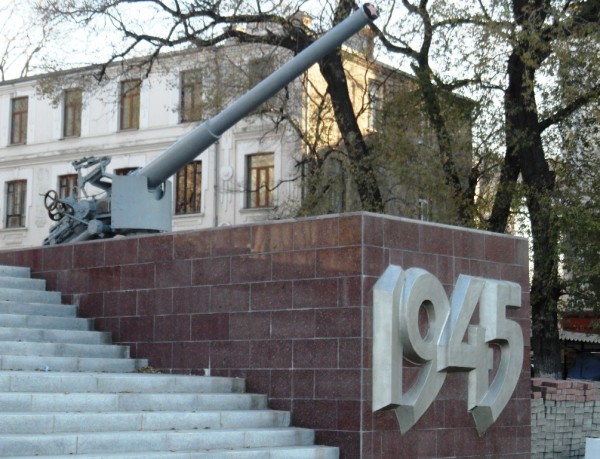
20. Everyone thought I was crazy. Nearly every Russian I met thought I was absolutely crazy for wanting to travel on the Trans-Siberian Railway. For those in St. Petersburg and Moscow, visiting Siberia and far eastern Russia simply held no appeal. I was even told that all the cities were ugly and there was nothing to do (not true!!). On the other hand, those I met along the Trans-Siberian route found it odd that I would be so interested in riding a train that they simply take as a matter of course, whether to visit family, go away to school or travel for work.
21. Fur is everywhere. Lots of fur and very big fur.
22. Every conversation tends to sound like an argument. There is something about the intonation of the Russian language that just sounds a little whiny to the foreign ear. Hence, nearly every conversation I overheard sounded to me like someone was complaining about something to the other person and often ended up sounding like a full on disagreement.
23. People still go to banks. When is the last time you actually went to your local bank branch to conduct any kind of transaction? Yep, me neither. Maybe it’s because Russians know the ATM machines are shady (i.e., eating my card not once, but twice!), but every time I passed a bank in Russia, there seemed to be a large line.
24. Public displays of affection. Russians may have a reputation for being stern or grumpy, but with each other they can be incredibly affectionate. I witnessed PDA, including a few lusty make-out sessions, everywhere – on the escalator to the Metro (on many occasions!), on the Metro platform, in the supermarket, on the street corner in the middle of the afternoon, on the bus and even at the table next to me in the café at my language school in St. Petersburg.
25. Lenin is still the man. I think it may be a requirement for every city in Russia to have least one statue of Bolshevik leader Vladimir Lenin (or in the case of Ulan Ude, a giant bust).
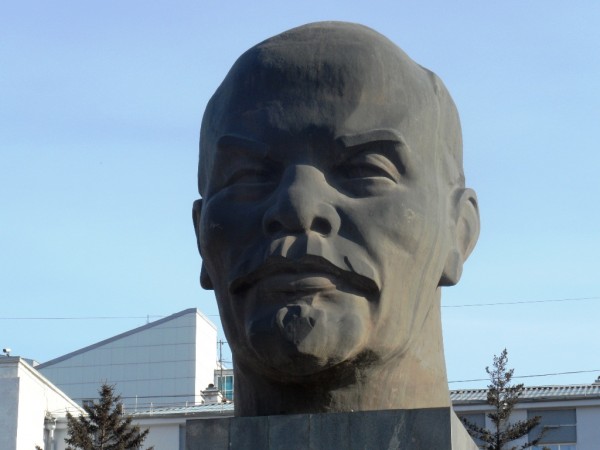
26. Open windows. Even in the heart of winter, Russians seem to like leaving their windows open. My hosts in Moscow left a window open a crack whenever they left for the day and I often returned to the flat in Irkutsk to find my roommate had propped the window open. Of course, this may have something to do with the fact the heat in buildings is turned up incredibly high during the late fall and winter.
27. High heels and short skirts. These seem to be a requirement for Russian women everywhere. I was expecting it in Moscow and wasn’t surprised to see it in St. Petersburg. But I was surprised to see women traversing the icy sidewalks of Irkutsk and Krasnoyarsk in four-inch heels and skirts barely covering their butts – especially when it was well below freezing!
28. Exact change. Russian store clerks seem to love exact change. For example, if I bought something in the market and my total was 155 rubles and I tried to give the clerk 200 rubles, she would ask for an additional 5 so she could give me back an even 50 rubles. They also tended to round up or down to avoid giving ridiculously small amounts of change back – thus if my change due included 46 kopecks (the Russian version of cents), the clerk often just gave me a 50 kopeck coin.
29. After Lenin, Pushkin is man number two. Like Lenin, poet and founder of modern Russian literature Alexander Pushkin seems to have a presence almost everywhere.
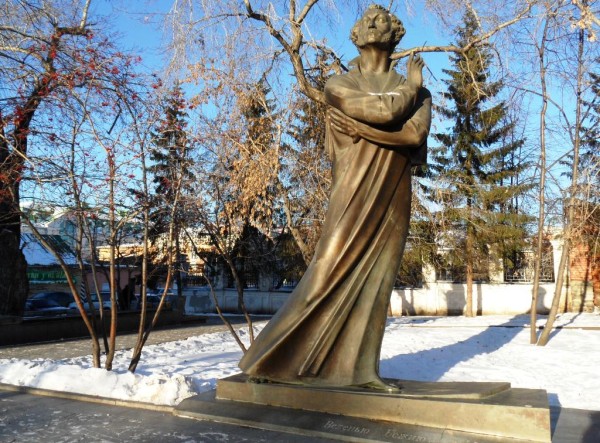
And finally…
30. I want to go back. Yes, three months was a long time, but considering that Russia is the size of the United States and Australia combined, I feel like I barely scratched the surface. I will likely hit St. Petersburg again, ideally in the summer months, but I will probably skip Moscow. I want to visit more of the small towns around the Golden Ring, spend time exploring off the beaten path places like Tuva and Khakassia, volunteer with the Great Baikal Trail (this time actually helping to build the trail around the lake) and hit the wild outdoors in the Kamchatka Peninsula.
I don’t know when, but I will return someday. And I’m sure the good, the bad and everything in between will be right there waiting for me.

I found it quite strange that you disliked a police presence, particularly after you enjoyed the benefit of feeling safe and secure – no doubt due to the mitigating presence of those exact same police officers!
It was interesting to read about traveling to my country, thank you:)
If you ever come back to Russia, and would like to visit cute, small city, pay attention to the city Penza and nearby area, like Nikolsk, Pachelma with its beautiful old churches. I think you’d like it.
Hi! I get here by chance. I live in Russia, at Urals, and, of course, it’s interesting for me how people from other countries see Russia and Russians. So thank you for your post! I enjoed it! Most of the things you write are true. And I’d like to comment your post.
1. About “race-related targets” of police. Yes, that’s certainly so. But I have to say this “racism” is not just mean that white Russians don’t like some colors of skin and hair (although you might meet people saying so. There are some percentage of them). In fact, police has to keep an eye on Caucasians and Asians since there’s high percentage of crime committed by them, especially in Moscow. “Guests from south” mostly don’t care about following rules and laws in Russia. And while Uzbeks, Tajiks and Chinese are quite inoffencive (they break migration, trade and some other administrative rules), “Mountain folks” can easilly kill people if they feel offended. White Russian in a case of offence might (maximum) smash one’s face, but an Daghestani or Chechen would take his knife which he always carry with him. You know, handling knives is a part of their NATIONAL CULTURE (seriously). They seem to be born with them. I personally have nothing against them as people living in my country. But when there are too many of them in a single place (Moscow, for example) and they feel being at home there, it cause problems.
In fact, Russia historically is a multinational country. And a lot of different ethnic groops accustomed to live among ethnic Russians. For example, Tatars. They are Muslims, they have Turkic appearance and they have their own culture. But I never heard about any significant conflicts between them and white Russians in modern time. On the contrary, in many cases they are being respected and easily became chiefs. When you were in Irkutsk you might notice how much Buryats live there. Peoples of the north – Mansi, Khanty, Nenets. I don’t bellieve they are being offended anywhere.
Yes, I agree, there are TOO many policemen in Moscow. (For example, when I was in Madrid I hadn’t notice any police at all. Although, that’s a capital of a country as well.)
2. Sleeping habits – ha, funny! Yes, this thing happen. But surelly that’s not about all people, after all.
3. Chip on shoulders and complaining habit, argument habit – it’s very sadly that it’s so noticable 🙁 I would say, that’s kind of social decease that began after Sovet Union collapse. You know, in Soviet times people had goals, they knew what did they live for. If you had seen Soviet films, documentaries, you’d notice they all about important human values – friendship, love, mutual aid, art, values of community, human relations. Even cartoons and movies for children had very deep intellectual and psychologigal sence, so they were interesting and instructive for adults as well. All that trained people to positive thinking, creating, having goals and reaching them. I don’t bellieve that problems you mentioned were actual that time. And even first time after Soviet Union collapsed there were very hard times (enough to say about inflation of 600%. Imagine that!), but people still had soviet habit to bellieve that life is gonna be better. I was a kid that time, but I don’t remember too much complaining (like now), allthough there were a lot of reasons to. But years passed… What goals have we now? You know, doubling of GDP (famous goal proposed by Putin) is a very strange goal in terms of an ordinary citizen.
So I think, this decease will be healed some time…
It would be funny if my comment will be taken as a sort of complaining as well! 🙂 But that’s a history that explains things a bit.
4. Not flushing toilet paper 🙂 Oh, funny topic! No-no-no, that’s not due to plumbing problems! I would say it’s a cultural and psychological thing. You must be talking about public toilets? Yes, in most of them there is a bin and severe sign ordering to drop paper there. It’s made so because you never know what kind of garbage people may drop to the toilet bowl if you permit them to drop paper there, and/or there’s no bin. In household toilets, of course, there’s different case. But in my observation on my friends, relatives and whatever, most of them do flush paper. The correlation is about 60/40 or 70/30.
5. Smoking – yes, a problem. But there is a law coming now that restricts smoking in public places and transport. But I don’t bellieve that law will radically put an end to this (I mean, practically). But maybe some effect will be gained.
6. Flowers at night – no, I have no idea what for… I’ve noticed there are many flower shops, but I didn’t know some of them work round-the-clock.
7. Pot holders – we use them. At least, my family and most of my frinds and relatives. Yes, sometimes pot holders may mystically disappear from their place and appear behind the stove, under the furniture and so on. In that cases people use what is easier to find. Or if it’s short time they live in their appartments and their mode of life is still forming.
8. The term “Great Patriotic War” is not similar to WWII. It means the part of WWII from invading of German army to USSR (22d of Juny 1941) to the day when Germany capitulated (9th of May 1945), and where Red Army involved.
9. About “being crazy” travelling TransSib and so on. Yes, it’s sadly, but a lot of Moscow people seem to be thinking there’s nothing exist in Russia but Moscow. That’s why Moscow people quite coldly treated in other parts of Russia. Some people say openly “Moscow is not all Russia” and “Don’t judge Russians by Moscow folks”. And I would agree with that. But core reasons are the same that I mentoined about “Chip on shoulders”.
I would say, very few Russians did really travel their country. Most of people from Moscow and European part of Russia have never been by Urals. Siberians mostly travel across Siberia. And so on. But there are a lot of things and places to see in Russia. I live at Urals, but I’ve been in many places from Moscow to Sakhalin island. And yes, Kamchatka is my dream too! And Kuril islands. But if you going to visit Russia again, I highly recommend you to visit Sakhalin island. It’s amazing! And also Primorye.
I really enjoyed reading your blog.
I am going to Moscow in September to start a new job there (I’m a self-titled ‘English language teacher’), so it’s good to read about your experiences and things to watch out for when you’re there.
I have been working in Georgia (Russia’s neighbours, not the American state) for almost 2 years now, and I have to say many of your observations are similar here – case in point sleeping late and every conversation sounding like an argument!
Good luck in the rest of your travels
Thanks David! Hope you checked out my Georgia posts as well! 🙂
Great summary post of Russia. It’s interesting that those in the western cities of Russia don’t have any interest in the trans-Siberian railroad. I’ve experienced a similar phenomenon with friends from Brazil – they have never been and never intend on going to the Amazon. ‘It’s just a big forest – why would I want to got there?’ was their response when I asked why they didn’t want to go. Thanks for sharing!
Thanks! I think it can be somewhat typical for people to write off sights in their own country, especially in countries as big as Russia or Brazil or even the US.
Great summary! Your post peaks my interest in Russia… it sounds like such a unique place. I’m still trying to get my head around the 24-hour flower stands 🙂 Was it at all sketchy traveling there? And did you get any interesting reactions being an American?
Thanks Lesie! Nope, didn’t feel sketchy at all – as I mentioned above, everywhere I went felt very safe! And it’s funny, can’t say I got many reactions being an American. A lot of people initially assumed I was German. Two people got all excited when I said I was from the US and then proceeded to tell me about people they knew in Canada – like they just kind of lumped all North Americans together. 🙂
Ok, I have to ask – what are pot holders? Are they the same as cup holders? And when you say electric water pots, do you mean what we call “kettles”? Sorry for the questions, was just being ConfusedJulia haha!
The heels and short skirts thing doesn’t really surprise me – I used to work with a Russian lady who wore some “interesting” outfits when we went on a night out! She also used to take photos of herself and her husband sat having dinner at home using the self timer on her camera and then show them to us. To say we found her a bit odd would be an understatement 😉
And I can’t understand who would need flowers at 4am? Unless lots of people are doing things they feel they need to apologise for? Haha.
LOL! Pot holders are thick mitts you put on to take hot thing off the stove or out of the oven. We also call them oven mitts. Everyone in Russia just seemed to use towels which was awkward and they didn’t really work to keep your hand from getting really hot.
The electric water pots probably are what you call kettles – they are big plastic pots that sit on an electric current thing that boils the water in like 30 seconds.
And yeah, the 24 hour flower thing I just didn’t get – although people really were into giving people flowers – especially when meeting people from the train!
Haha, I was just going to “correct” Katie and say that everywhere else, everyone just calls them “kettles”. It’s funny, because they are EVERYWHERE in the world except for the US. You can buy them here, but they are harder to find and quiet expensive. (Though my sister and parents have them.) Just goes to show what a coffee drinkin’ society we are!!
Loved this wrap up! Russia is so one my list. One day. And probably not in winter:-).
So weird that they are so expensive in the US when you can buy them from about £8/£9 in the UK and every household has one, even if they don’t drink much tea or coffee.
Glad I asked about the pot holders – I would never have got that! Haha. We call them oven gloves 🙂
Haha, good to know! If it wasn’t for the different plugs, I would totally bring one back with me to the US.
I have to admit… I don’t know much about Russia and have NEVER had interest in visiting it. Before reading this the only thing I would love to visit Russia for would be to watch a RUSSIAN BALLET performance and drink some VODKA. I love both so much and know they are some of the best in the world in Russia. However after reading this… now Im curious to learn more about Russia. I just thought it was a cold crazy country and by cold I mean freezing cold, but also cold in attitude and emotion.
Oh & I also read your hitting the wall post but never got around to comment… Its okay it happens to everyone. I agree with everything you mentioned. I had those moments a few times on the road and well right now I am having one of them. Im spending a month in Athens because its cheap and I dont want to do anything. Its okay dont feel bad and as for missing people and friends and stuff I get that too… but just remember what I am doing is amazing and I wont regret it when I am done!
very very interesting article. I’ve never been to Russia but I was lucky to meet a lot of Russians from Moscow, St. Petersburg and from Siberia. The latter I found to be the friendliest.
The smoking thing is horrible, but it’s sort of expected in Russia I suppose. I was, however, incredibly surprised when I came to Zurich Switzerland and discovered that 75 per cent of the population in and around the city smoked. I am highly allergic to cigarette smoke, so it’s not fun, and smoking in public places only became illegal around a year and a half ago.
I was told once by a Swiss student that a friend of his who worked in Russia for a while was scolded by her boss for not wearing those super high heels you mentioned…
A Russian student once told me that real fur warms one up much more than synthetic fur. I am also guessing they leave the windows open to prevent moss build-up indoors. That green stuff grows quickly when it’s slightly wet and really warm indoors.
Is Kamchatka on this trip’s schedule or a future one? I would love to read about the place and how easy/difficult/expensive it is to travel there.
Thanks Denise! I’m actually already in Lithuania – I’m a few weeks behind on my blog posts. 🙂 Hoping to get to Kamchatka someday…
I think part of the window-opening thing is also that they crank they heat up ridiculously high inside in the winter – I often woke up sweating it was so warm!
Again, I love your insight into a country I know so little about. You know Andy and I will be peppering you with questions whenever we get around to the Trans-Siberian trip!
Ha, Andy’s already started with the peppering! 🙂 But ask away!
SO INTERESTING! I can’t wait to get there someday… at our flat here in Croatia, we only get about a dozen channels in English (and I don’t watch much TV anyway), and one of them is RT Documentary. It is so funny to be in Croatia and be so enthralled with Russian history. Kurt has always, always wanted to go on the Trans-Siberian railway too, so I’ve especially loved following that in your posts!
Thanks Dayna! Glad you’ve been enjoying the journey!